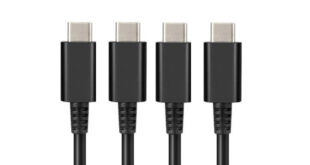Games have been central to the speculation leading up to last night’s unveiling of the long-awaited Apple TV. All week, tech and games blogs have been suggesting that this could be the device that finally enables Apple to take on Xbox, PlayStation and Nintendo in the gaming space.
Unsurprisingly, that’s not what the Apple TV is.
It’s another extension of the established App Store, with a fancy new touch and motion-based remote controller that will be home to games, but also a bunch of TV services and other types of apps that already compete for your time via the iPad and iPhone.
However, that doesn’t make it any less important for developers.
The Apple TV’s unveiling: the new device potentially opens up the living room to all developers, from one-man indies to the bigger players in the mobile space. It enables studios to branch out from smartphone and tablet and titles, and create new games for those vast flat-screens that have become almost ubiquitous in people’s homes.
Yes, there are already established routes to getting your game on TV. The trio of console manufacturers have become much more accommodating to smaller developers in recent years, thanks to schemes like ID@Xbox. But Microsoft, Sony and Nintendo still retain tighter control of what is released on their consoles than Apple does for its App Store.
And yes, PC offers a way to get your game onto the TV screen, but that’s less dependent on the platform and more on whether or not you have a tech-savvy audience that has their rig set up that way. Valve has Steam Link on the way, but we’ve yet to see if this will have any more impact than its Big Picture mode.
Apple TV, however, beckons all developers – especially those already releasing games on the App Store (which is likely to be a vast majority of studios out there) – to quickly and easily publish games designed for the big screen that aren’t a far cry from those already on iOS.
Let’s not mince words: there’s a lot of utter crap on the App Store.
Apple has been doing a much better job of curating its storefronts to hide the flood of sub-par titles this year, but they are still there. The point is if a platform is open to innumerable Flappy Birds clones and Candy Crush copycats, there is nothing to stop developers with ambition and a great idea getting their title into the hands of consumers – and now that includes families gathered around the TV.
It’s telling that one of the two games demonstrated during last night’s unveiling was Crossy Road, revamped for the big screen and now with added multiplayer. Hipster Whale epitomises the type of studio that have found success on the App Store in a way that they never could have on other platforms, and now Apple is hoping its new device will offer that opportunity to countless other devs.
OU-WHAT?
This opportunity does come with a caveat, of course.
It’s impossible to look at the Apple TV without thinking of the troubled Ouya, the poster child for the wave of microconsoles that have failed to establish themselves as the go-to apps device for the TV. Or Amazon’s much-lauded Fire TV, which has yet to gain traction. Or Roku, which has yet to attract anything in the way of recognisable games talent to its device. Or the clutter of Android microconsoles that have been announced, possibly crowdfunded, but no one can name.
There is also the slightly concerning comparisons to Nintendo Wii, somewhat inevitable in the face of the motion-sensitive remote control. The demonstration of Harmonix’s new title Beat Sports (and it’s not too hard to guess what Nintendo game this is modelled on) shows that Apple is keen to elevate the kind of games available for its new device and target a familiar audience.
The problem is that no one plays the Wii anymore. The ground-breaking Nintendo console has been gathering dust for many people, often only brought out at Christmas parties, and even Nintendo itself has struggled to build upon the incredible foundation it laid with that device.
In fact, the kids and casual gamers that drove much of the original Wii’s success have since transferred to Apple’s own platforms, the iPhone and the iPad, and it’s questionable how many are prepared to take the step back.
The 200MB size limit for apps is also confusing, although this is expected to be cleared up in the next few days – it’s unlikely Apple will want to limit the potential for games on its new device so strictly at this stage. Regardless, the inevitable annual hardware and/or firmware updates will no doubt remedy this.
Even in the face of such questions, it’s important not to discount the Apple TV so quickly. While Apple has struggled to sell as many of its devices, particularly iPad, in recent months and its competitors have gained considerable ground over the past couple of years, there is still a prestige to the Apple brand that gets thousands of consumers queuing for their latest devices. It doesn’t matter whether or not it sells as much as the iPad or iPhone – the point is that it will sell. At the risk of sounding flippant: it’s Apple, ergo people will buy it. The last decade has more than proven this.
The impact the Apple TV will have on either the games space or the entertainment set-ups of the world’s living rooms will only be seen in time. It’s now up to developers whether they want to take advantage of this new opportunity.

 MCV/DEVELOP News, events, research and jobs from the games industry
MCV/DEVELOP News, events, research and jobs from the games industry



